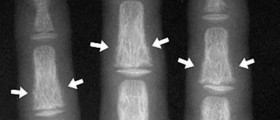
What is renal transplant and why is it done?
Renal transplant is actually a surgery procedure that is necessary in cases of people whose one or both kidneys do not work properly. In order for this procedure to be done, a donor of the healthy kidney has to be found first, and during the surgery that healthy and donated organ will replace the unhealthy one. The reason why renal transplant is necessary is related to the fact that the kidneys actually function as filters to our blood since their main purpose is to remove the waste and excess fluid from the blood. So, in cases of kidney failure the levels of waste and fluid just keep accumulating in the body which causes further problems to the body and leads to new diseases or even a fatal outcome.
In numerous cases, renal transplantation turns out to be the best and the only possible solution to kidney failure but it cannot be done always, since it is necessary that the donor be compatible with the patient who needs this kind of a surgery. In case none of the blood-related relatives matches there is a waiting list and the patient’s name is put on that list until the matching donor appears. The period of waiting may last for a year or even longer in some cases. Until then, the patient will have to have dialysis regularly because in that way his blood will be filtered artificially.
The procedure and possible complications
Renal transplantation bears a significant risk of possible complications both, during it, and after, and it is important for the patient to find a way to stay healthy until the donor appears because only if they have no other health conditions the procedure may be done. So it is important to stick to the proper diet, follow the instructions given by the doctor take all the necessary medications and be involved in some healthy activities, if possible. Some of the complications that may occur during the procedure are these which are more or less common to every procedure such as bleeding, infection and blood clots. On the other side what may also happen is that the body rejects the transplanted kidney or that the kidney simply fails to work properly.
However, in order to reduce the risks of rejection to minimum, there are certain medications that every patient has to take after the procedure. They may also cause some side effects so it is important for the patient to be well informed about them. Some of the most common ones are high blood pressure and high level of cholesterol, diabetes, thinning of the bones and gaining of the weight.

















Your thoughts on this
Loading...